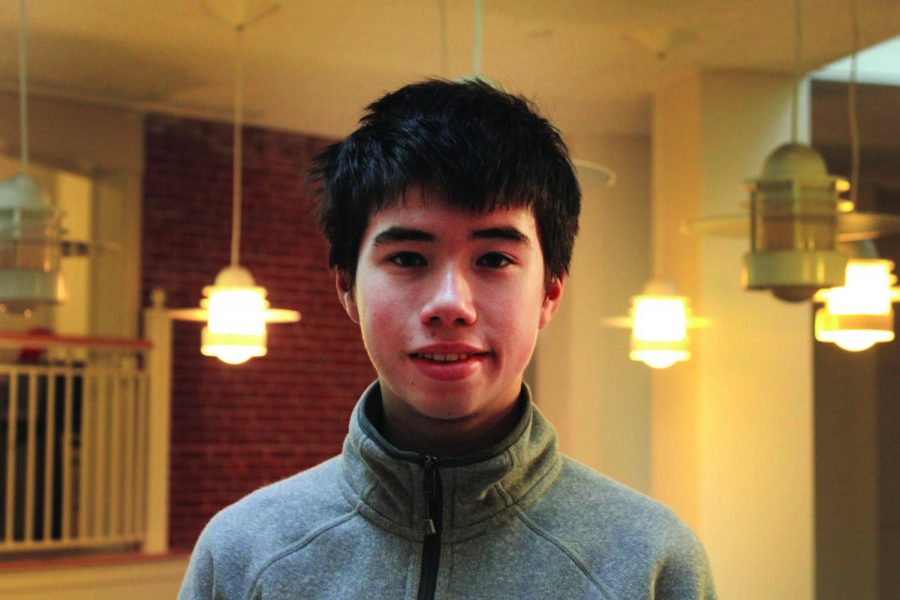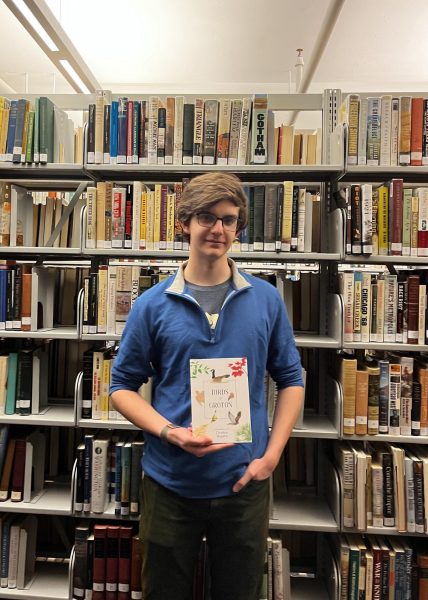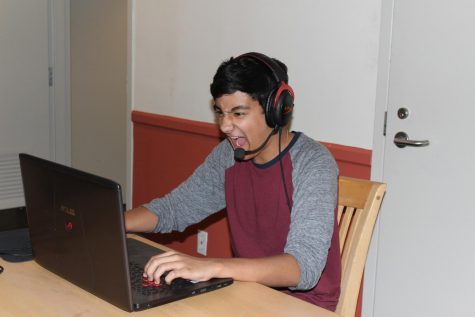Breaking the Other Barrier: Students with English as a Second Language
For many students, the transition to Groton and boarding school life is uniquely challenging. New friends, teachers, subjects, and surroundings on the Circle are daunting, even to the most outgoing student. Some students have yet another variable to juggle: language.
Approximately eight percent of the student body is international, and many students at Groton speak English as their second language. Mr. Funnell, Director of Admission, said, “The standard we expect is a bit ambiguous, but I use the term ‘near native’ to describe the level we are looking for.” In addition, Groton requires the TOEFL (Test of English Foreign Language) for anyone who has not studied at an English language school for at least two full years. Mr. Funnell added that there is no formal cutoff for the TOEFL results, but most students score above 100/120 on the exam. Like every other challenge on campus, everyone who has a different native language approaches English-related studies differently. However, many students who speak English as their second language do not believe it is a lasting barrier to their studies here.
“I don’t feel that English being my second language has hindered me in any aspect at Groton,” said Faye Tian ‘19, whose native tongue is Mandarin.
Tyler Weisberg ‘22, who also speaks Mandarin fluently, said, “I seem to be able to mix in with the other kids perfectly fine. When I tell them that English is my second language, sometimes they seem a little bit surprised.”
Julien Lee Heberling ‘19, whose first language is French, mostly agreed. “Well, language-wise, I was generally able to speak English, but there would be some phrases I would miss out of, especially colloquial stuff,” he said. “[My English] wasn’t quite as natural as my French, but I haven’t spoken French in a while so [English has] gotten better.”
Not everyone’s experience has been seamless. Fran Saldivar ‘19, a native Spanish speaker, noted that it was initially more difficult writing essays, reading aloud in class, or debating publicly because the level of English increased substantially from her old school and, subsequently, insecurities arose. However, since then, Fran said, “My writing has gotten progressively better. I am now more concise, eloquent and, of course, have more vocabulary.”
When asked about how Groton’s curriculum accommodates non-native English speakers, students had a variety of answers. Lwazi Bululu ‘20, whose first language is Xhosa, said, “The Groton curriculum has helped me by teaching me at the same pace as my classmates, not putting me in an easier section because English is not my native language… But I feel in second and third form, teachers work on improving that aspect of language [teaching].”
Fran, in contrast, called for more guidance, although she said that she was motivated by the high standards teachers held her to. Faye shared a similar view, adding that the only way she could see students getting extra help at Groton was by seeking out one-on-one meetings with teachers.
Other students simply cited the requirement of English throughout the application process as a natural deterrent for students who truly struggle with the language. Julien noted that more than half of the SSAT is based on a thorough understanding of English, and Filip Engström ‘20, originally from Sweden, said, that students whose native language isn’t English “are expected to have the same proficiency as any other student, regardless of how long they have spoken the language.”
Yet, most students agreed that their time at Groton changed their perspective on different cultures through their understanding of language. In addition, many students said they became more conscious of both English and their native languages. For example, Faye described situations both from English to Chinese and vice versa “hopelessly lost in translation,” and how they prompted her to compare cultural norms and linguistic habits. “In Chinese,” she said, “for example, relatives all have different names depending on whether they come from the mother’s or the father’s side of the family, whereas in English there is no such distinction. Also, in Chinese, there are no tenses; I’d actually never thought about or even realized this before someone at Groton asked me how to say ‘I run’ versus ‘I ran’ in Chinese, and it struck me that Chinese verbs don’t have different tenses.”
Lwazi also mentioned becoming more conscious of the ties between language and identity, saying, “I feel sometimes I cannot fully express myself not because Groton is suppressive but because I find myself to be unique in my native tongue.”













